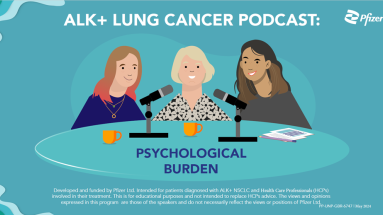Managing nutritional concerns: mouth sores/dry mouth
Cancer treatment affects the cells in the body that replicate the fastest and are the most sensitive. These cells are located throughout the lining of the digestive tract, which consists of the mouth, throat, oesophagus, stomach, intestines and rectum. As a result, cancer patients often experience symptoms in these areas, including mouth sores and dry mouth.
Mouth sores (also called mucositis or stomatitis) may occur in spite of good oral hygiene, but maintaining oral hygiene may decrease their severity and duration.1
Oral care tips for people experiencing mouth sores/dry mouth2
- See your dentist if possible before you start treatment
- Check your mouth daily for any sores, white patches or bleeding. Call your doctor about any increase in sores, white patches or pain, or if you are having difficulty eating, drinking, swallowing or talking
- Use a soft bristle toothbrush (placing the toothbrush under a hot tap can make bristles even softer) to gently brush your teeth and tongue, twice a day. Air-dry your toothbrush before putting it away to discourage growth of bacteria
- Gently floss your teeth daily if your platelet count is in a safe range (and if advised by your doctor)
- Avoid mouth products containing alcohol as they will dry out and irritate your mouth
- Protect your lips using a water-based moisturiser
- Avoid alcohol and tobacco, which will irritate and dry out your mouth
Nutrition tips
- Stay hydrated by sipping on fluids throughout the day
- Avoid foods that are salty, spicy, acidic and rough or coarse in texture
- Use sauces, liquid, broth or gravy to moisten food
- Consume soft foods such as soups, smoothies, yoghurts, hot cereals, casseroles, eggs, tender meats, and well-cooked and mashed fruits and vegetables
- Use ice cubes, sugarless gums, and boiled sweets to moisten your mouth
- For dry mouth, without mouth sores, try a tart liquid or food (lemon, lime, and/or pickles)
- Drink fluids through a straw to avoid painful areas of the mouth
- Discuss with your doctor if you feel that you need medication to help alleviate the pain
More information is available at Macmillan Cancer Support
It can help to talk to your doctor or nurse if you have mouth sores, ulcers, bleeding, white patches, pain or difficulty swallowing, eating, drinking or talking.
References
- Dental and Oral Health. Accessed August 2022.
- Elliot, L. Symptom Management of Cancer Therapies in Lesser M, Ledesma N, Bergerson S, Trujillo E, eds. Oncology Nutrition for Clinical Practice. Oncology Nutrition Dietetic Practice Group of the Academy of Nutrition and Dietetics. Academy of Nutrition Dietetics; 2013:119-120.
The health information contained herein is provided for educational purposes only and is not intended to replace discussions with a medical professional. All decisions regarding patient care should be made with a medical professional.










